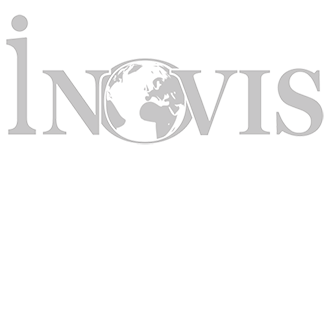 CONTACT US
CONTACT US

Because the channel often drives 50% of revenue or more (up to 100% for some companies), it's natural to prioritize determining how to foster this route to market. Gaining this insight requires getting well-rounded perspectives from your channel partners:
Likewise, understanding the channel programs of your competitors is critical both for staying aware of the current state of their strategies, successes, and failures and for anticipating how their likely next steps may impact your indirect business. Thoroughly understanding the channel business of your competitors helps you better ensure the competitiveness of your own.
Without deep channel insights, you may find yourself facing lackluster performance periods and wishing you knew why your partners have started backing away from your business. We spoke with partners and vendors to boil down three key insight areas to monitor as you seek to manage the health of your channel business and effectively compete in your target markets.
contact us to learn more about how we can assist with your competitive marketing game ⟩
It's important to conduct regular health checks on your partners' perspectives about how you treat their relationships with the established customers they have brought you.
If you have a presence in the SMB segment, you know that your channel partners most often serve as the face of your business there. This means that your partners choose to recommend your products to their own, established customers - and share those customers with you. Your partners have a network of longstanding relationships in the regions they cover. These are often personal relationships reaching far beyond your company's products, with customers who wouldn't make direct sales inquiries to your company.
Channel conflict can hurt both sides of your business. It's valuable to monitor the health of channel/direct and channel/channel relationships in your own business and that of your competitors.
Depending on your company's approach, your partners likely interact regularly with your direct sales and consulting teams and/or interact frequently with each other. As you examine this range of interactions, keep in mind that your partners can significantly influence the buying choices of their loyal customers. Tying back to Question #1, a partner who's concerned that your direct sales force aims to take over a valued indirect account or who feels that partner-to-partner rules of engagement are unclear will likely take protective measures - including recommending products and solutions from other vendors with stricter or better-enforced rules of engagement.
On the flip side, you can mine for new opportunities by identifying areas of channel conflict among your competitors and understanding why partners trust some vendors in your industry more than others. The resulting insights can drive informed choices about how to fine tune your own approach and identify valuable prospective partners for your ecosystem.
Vendors naturally require investment from their partners as part of doing business together. As you monitor your channel's health, you can watch for possible pain points about the requirements you set for your partners. Likewise, stay aware of the level of requirements that your competitors impose.
As you plan your own program's requirements, arm yourself with the information you need to view the picture through the eyes of your channel. To start, remember that your partners constantly weigh the requirements that each vendor sets for partner investments (level of training, certifications, inventory etc.) vs. the margins and business that the vendor provides. This means your partners compare their overall margin (including impact of your required program investment to margins from products and services) from your business vs. what your competitors can offer.
Partners who spoke candidly to INOVIS said that they must evaluate the burden of these requirements vs. their loyalty to any vendor - even long-time favorites. If the requirements-to-benefit ratio falls short, some partners opt to look elsewhere, adding or more heavily recommending your competition in their line card of offerings.
Some of the information you'll need to assess your partners' profitability and how your requirements (and those of your competitors) impact it can be hard. Much of this is outside the public domain. Digging deep to get it gives you a competitive advantage. Understanding your channel partner's business models, your competitors' requirements vs. benefits offered, and channel sentiment about both your requirements and those of your competitors positions you to proactively adjust your approach to protect and foster your indirect business.

Marc Limacher started INOVIS in 1992 as a boutique primary CI specialty firm in Palo Alto, CA, specializing in the pharma/medtech, digital health and IT industries.
